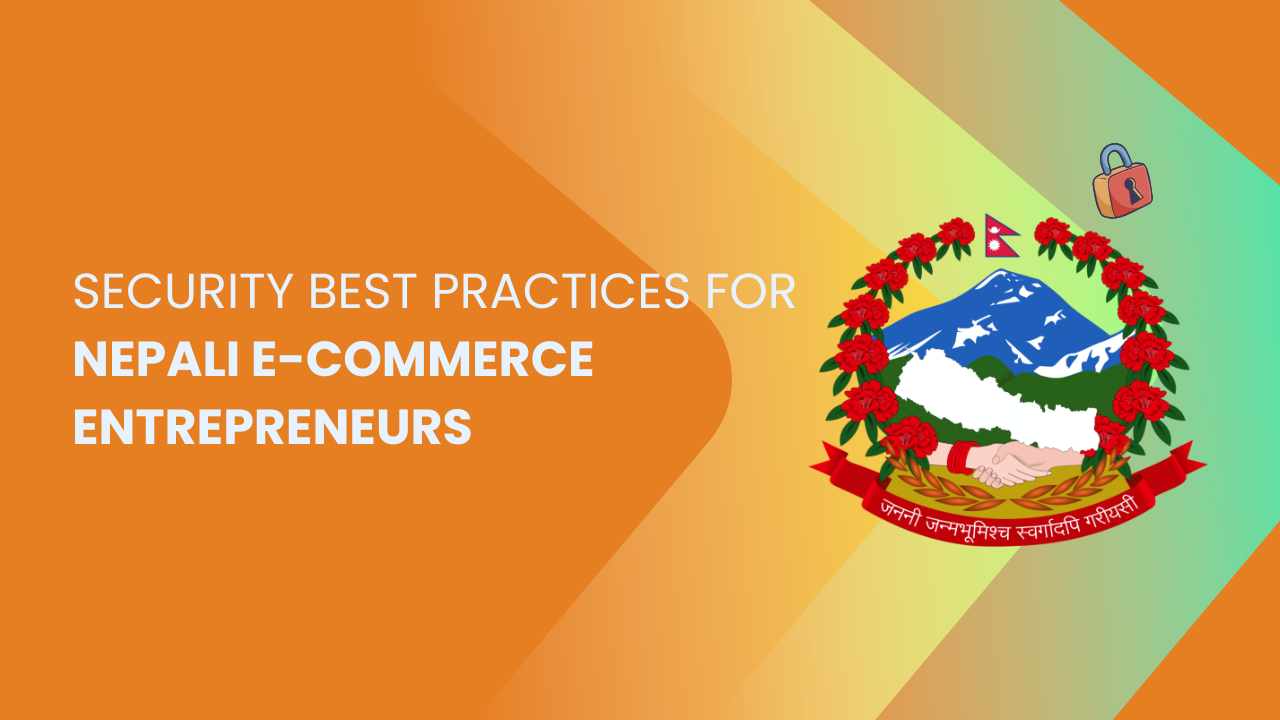Share this Article
Introduction: Why Selling Online Matters in Nepal
Selling online in Nepal is no longer an option for entrepreneurs; it has become a necessity. With rapid growth in internet penetration, mobile usage, and digital payment adoption, more Nepali consumers are embracing online shopping. From fashion and electronics to groceries and handmade crafts, the opportunities for selling online are vast. Online businesses can reach a wider audience, reduce overhead costs, and operate 24/7, making them attractive for both small startups and established enterprises. This guide is designed to help beginners understand the essentials of starting an online business in Nepal, from choosing products to marketing, logistics, and scaling for long-term success.
Understanding the E-Commerce Landscape in Nepal
Before starting an online business, it is essential to understand the e-commerce ecosystem in Nepal. The sector has grown exponentially in recent years, driven by the rise of smartphones, affordable data plans, and digital wallets such as eSewa, Khalti, and ConnectIPS. Nepali consumers are becoming more comfortable with online transactions, particularly in urban areas, while social media platforms like Facebook and Instagram are widely used to discover and purchase products. Additionally, government initiatives to encourage digital payments and small business growth have created a favorable environment for entrepreneurs. However, challenges such as logistical constraints, trust issues with online payments, and competition require careful planning and strategy.
Choosing the Right Products to Sell Online
One of the first steps in starting an online business is selecting the right products. Product selection should balance market demand, profitability, and your ability to manage inventory. Popular categories in Nepal include fashion and apparel, electronics and gadgets, beauty and wellness products, handmade crafts, and groceries. It is essential to identify a niche or unique selling proposition to differentiate your store from competitors. For instance, selling locally made products, eco-friendly items, or imported goods with limited availability can attract specific customer segments. Conducting market research, analyzing competitors, and understanding consumer preferences are critical steps to ensure that the products you choose have strong potential for sales.
Setting Up Your Online Store
After deciding what to sell, the next step is to set up an online store. Beginners in Nepal can choose from a range of options, including creating a website, selling through social media platforms, or using an e-commerce platform like Shopify, Daraz, or local alternatives. A website allows complete control over branding and user experience, while social media platforms can provide easier access to customers without heavy technical investment. The store should be visually appealing, easy to navigate, and optimized for mobile devices since most Nepali consumers shop on smartphones. Clear product descriptions, high-quality images, and transparent pricing are essential to build credibility and encourage purchases. Investing in a secure payment gateway ensures safe transactions and builds customer trust.
Creating a Strong Brand Identity
Branding is a vital aspect of selling online. A strong brand differentiates your store, conveys professionalism, and builds trust with customers. This includes developing a memorable brand name, logo, color scheme, and tone of communication. Packaging and presentation also contribute to brand perception, especially for products like cosmetics, fashion, and gifts. For beginners, it is important to communicate a clear message about what the brand stands for, whether it is quality, affordability, uniqueness, or supporting local artisans. Consistent branding across your website, social media, and product packaging reinforces recognition and credibility in the eyes of customers.
Digital Marketing Strategies for Beginners
Marketing is critical to attract and retain customers. Social media is one of the most effective channels in Nepal, with platforms like Facebook, Instagram, and TikTok offering opportunities for organic engagement and paid advertisements. Beginners should focus on creating content that resonates with their target audience, including product demonstrations, storytelling, tutorials, and customer testimonials. Search engine optimization (SEO) ensures that your online store appears in relevant searches, driving organic traffic. Email marketing can be used to nurture relationships with customers by sending personalized offers, updates, and newsletters. The key is to combine multiple channels and consistently engage with your audience to build trust and drive sales.
Managing Inventory and Logistics
Efficient inventory management and logistics are essential for a successful online store. Beginners need to track stock levels, forecast demand, and prevent overselling or stockouts. Partnering with reliable courier services is important to ensure timely deliveries, especially in areas with challenging infrastructure. Packaging should be sturdy and presentable, protecting the product during transit while reflecting the brand’s quality. Offering multiple delivery options, including home delivery and pick-up points, enhances customer convenience. Additionally, clear return and refund policies help build trust and encourage repeat purchases.
Payment and Security Considerations
Accepting payments securely is critical in gaining customer confidence. Beginners should integrate reliable payment gateways that support credit/debit cards, bank transfers, and mobile wallets. While cash-on-delivery remains popular in Nepal, digital payments are increasingly preferred for convenience and speed. Ensuring that the website has SSL certification and follows best practices for data security protects both the business and its customers. Transparency regarding pricing, taxes, and shipping costs prevents misunderstandings and reduces disputes, contributing to a positive shopping experience.
Customer Service and Retention
Providing excellent customer service is essential for long-term success. Responding promptly to queries, resolving complaints efficiently, and maintaining communication throughout the purchase and delivery process fosters loyalty. Engaging with customers through follow-ups, personalized offers, and loyalty programs encourages repeat purchases. Collecting feedback and reviews not only helps improve services but also enhances credibility for new customers. In the competitive Nepali e-commerce market, strong customer relationships can be a key differentiator.
Scaling Your Online Business
Once the basics are established, beginners should focus on growth strategies. Expanding the product range, targeting new customer segments, and entering niche markets can increase revenue. Collaborations with influencers and partnerships with other businesses enhance visibility. Investing in advanced digital marketing, analytics, and automation tools allows businesses to optimize operations and make data-driven decisions. Seasonal promotions, festive campaigns, and special offers can boost sales and attract attention in a crowded market. Scaling gradually while maintaining quality and service ensures sustainable growth and long-term success.
The Future of Selling Online in Nepal
The future of e-commerce in Nepal is promising. Increasing smartphone penetration, improved internet connectivity, and the adoption of digital payments are creating an ideal environment for online businesses. Emerging technologies such as artificial intelligence, augmented reality, and chatbots will further enhance the online shopping experience, making it more personalized and efficient. Entrepreneurs who stay updated with market trends, invest in technology, and prioritize customer satisfaction will be best positioned to capitalize on these opportunities. Selling online in Nepal is not just a trend; it is a gateway to reaching wider markets and building a sustainable business.
Conclusion
Starting an online business in Nepal offers immense opportunities for beginners willing to invest time, effort, and strategic planning. From understanding the market and choosing the right products to setting up a store, marketing, logistics, and customer retention, each step plays a critical role in determining success. Entrepreneurs who focus on building a strong brand, providing excellent service, and leveraging digital tools effectively can thrive in Nepal’s rapidly growing e-commerce sector. The journey may be challenging, but with careful planning and execution, selling online in Nepal can be a rewarding and profitable venture.
Categories:
Beginner’s Guides
Tags:
Online Store in Nepal
,
local businesses
,
e-commerce app
,
Small Business
,
EcommerceGrowth
,
SustainableEcommerce







